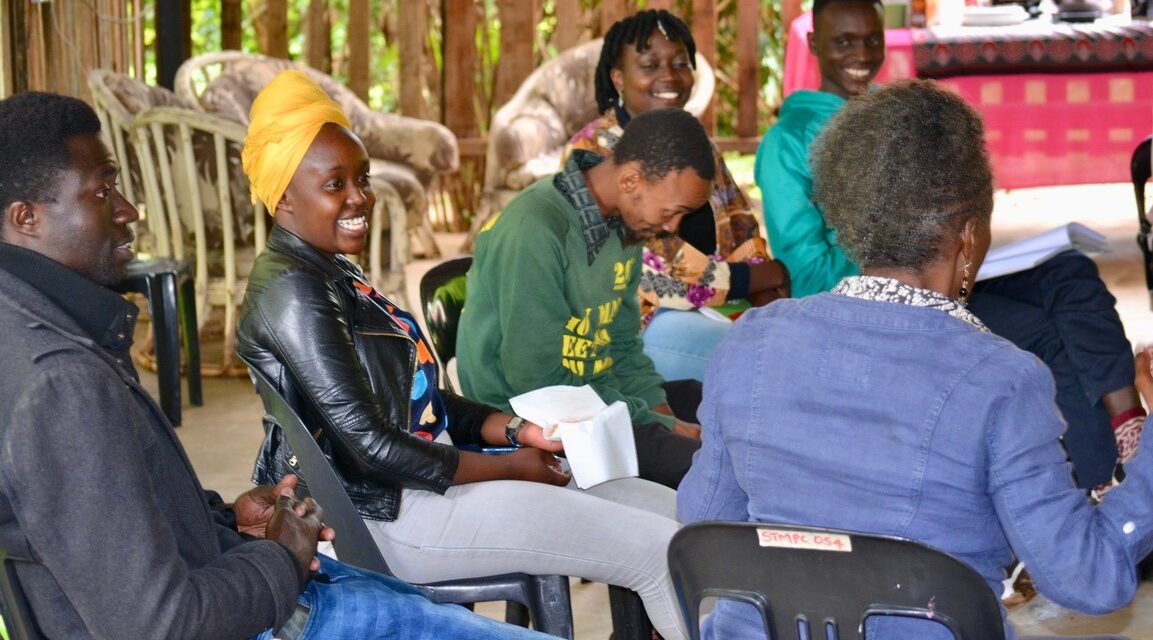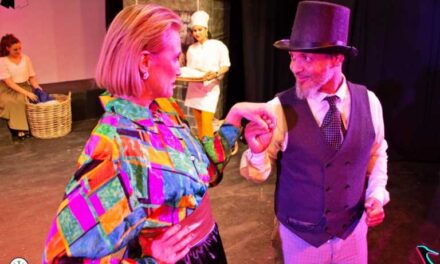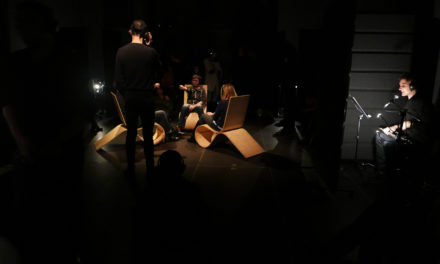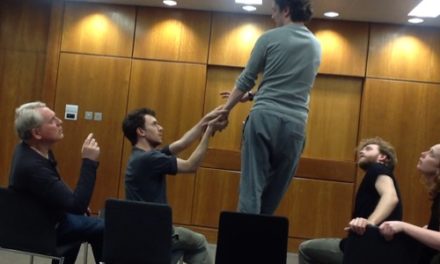The Akamba people of East Africa have a saying: “The visitor has the best tobacco.” But what happens when the hosts are anxious to sample the visitor’s tobacco but, after giving them a few whiffs, says that he would like to sample their brand of the same?
Such was the situation at a “storytelling workshop” held in Nairobi, Kenya. Welsh-born ‘storyteller and performer’ Christian Rogers was the invited trainer. Those in attendance came from varied backgrounds: thespians, poets, writers, publishers, musicians – even a couple of medics! The Theatre Company (helmed by Keith Pearson) facilitated the event while Storymoja Publishers hosted it. StoryMoja founder Muthoni Garland – a writer, performer herself, was in attendance.
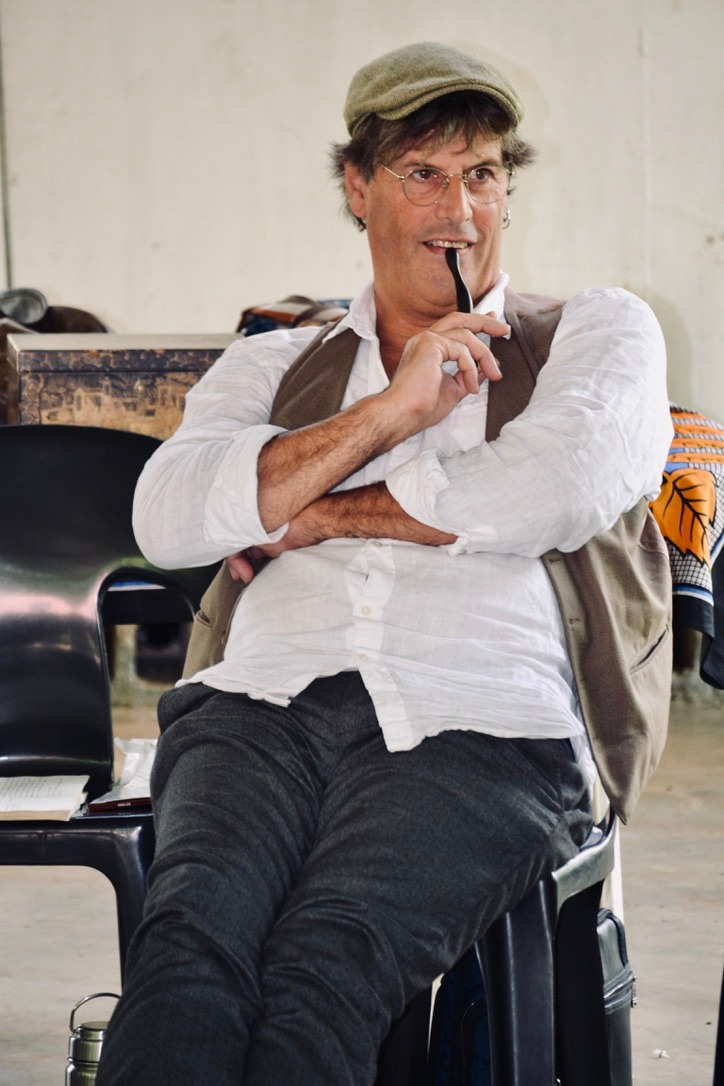
Storyteller and performer Christian Rogers. Photo by Luigi MK.
Unconventional
Rather than a classroom-type environment, the one-day event took place in a lush garden environment. The participants sat in a loose circle. Casually dressed in a flat cap, brownish half-coat, white cotton shirt and dark slacks (and with an earring for good measure), Christian looked rather like a European traveler from a by-gone era. He wouldn’t have been out of place on a ship captained by Jack Sparrow! But the look was probably deliberate. He appeared to harbor a fascination for ancient stories, poets, and philosophies, especially those from the East.
He informed us that he is currently working on a book about poet Jalal ad-Din Muhammad Rumi (1207 – 1273) whom he described as “the second most famous poet in the world.” According to a BBC Culture article by Jane Ciabattari, Rumi, a Persian bard, and Sufi master, is the best-selling poet in the USA today, never mind that his works are about 800 years old!
Christian Rogers is a difficult man to pigeonhole. What kind of storyteller was he, we wondered? Novelist, oral narrator, poet, historian, Bob Dylan-esque folk singer, short story writer, playwright? On the website of The Wild Word, where he was an Artist-in-Residence, he says:
I don’t read the stories from a book because they are in my head. I have over three hundred of them there already and I am still gathering new ones. New to me that is because the tales that I tell are hundreds, often thousands of years old and in need of a renaissance. They are folk tales, fairy tales and Märchen. “Wonder tales”, as they are called these days, from all around the world.
Methodology
At the Nairobi workshop, he used no books, visual aids, or laptop. He just spoke, eager not just to narrate, but to listen to stories. The poet is a mirror, not a lamp, he said in the early going. “A lamp may blind the audience…A mirror helps people find their own truth. It exposes their own faults, their self.”
He contrasted the methodology of politicians, teachers, and preachers who claim to have “the light” with the Buddhist approach of letting everyone “find their own truth.” He narrated a short story starring ‘truth’ and ‘untruth’ as characters. Interestingly, two other Aesop-Fable-type tales of Truth and Untruth emerged from the audience.
The concept of stories or storytellers not claiming to be the bearers of some light or truth was a troublesome one to the attendees. One of them mentioned that African cultures expect the “moral of the story” to be revealed at the end. I mentioned up a play of mine, titled The Stacy Walker Interview, whose script is freely available on the Worldreader digital library. Of all my Worldreader content, I said, that one has the fewest likes probably due to cliffhanger ending. Muthoni Garland mentioned there are narratives dubbed “Dilemma Stories” that deliberately leave out a conclusion in order for the recipient to draw their own conclusion. Christian took the intellectual game one notch higher by asking, “Can a question be as intimate as an answer?”
Sharing is caring
Most of the day was spent sharing stories; most real, some fictional. They ranged from the amusing (children in Nairobi’s Eastlands area running naked with street boys in hot pursuit) to the horrifying (forced female genital mutilation in modern times). For some reason, the stories were intensely personal. For example, a male participant was looking for a way to express his love to a formerly absentee father. A female one had a childhood memory of being humiliated after she was discovered not to have been wearing any underwear. Because Christian was interested in hearing different languages as well, the attendees spun their tales in English, “Sheng” (Kenyan urban slang) and Kiswahili. Makadem, a contemporary Kenyan musician, sung Dholou while strumming a Nyatiti.
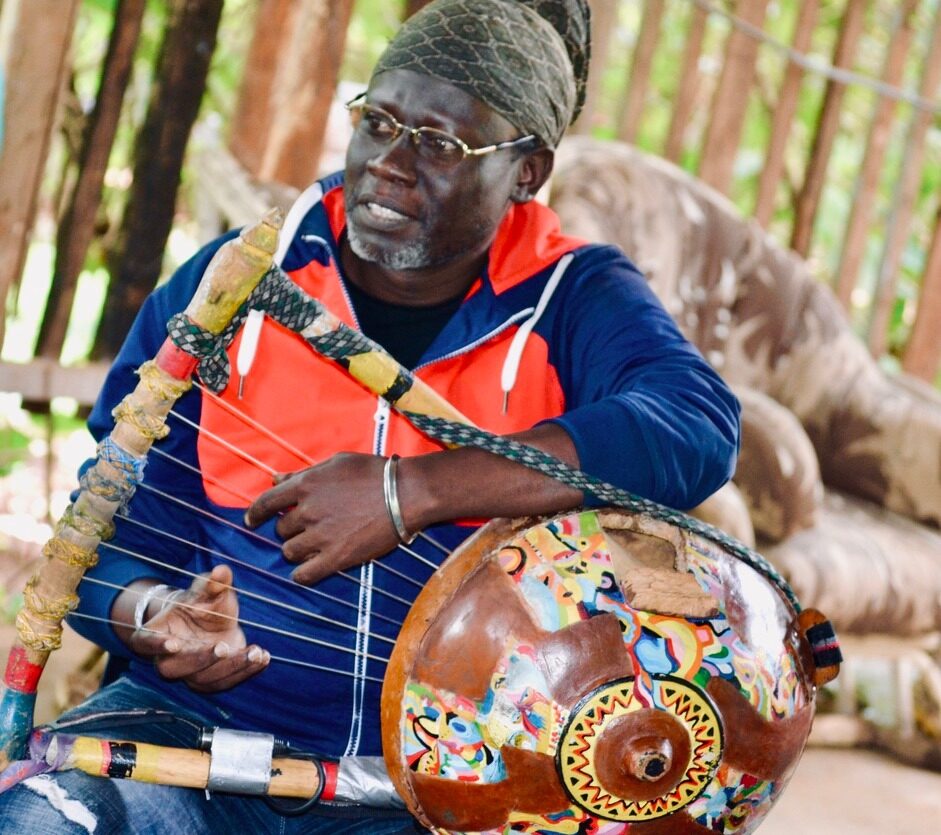
Musician Makadem (aka Ohanglaman) strums his nyatiti. Photo by Luigi MK.
Christian did share a couple of stories of his own. He probably wanted to “show,” not “tell,” how storytelling is done. For him, storytelling was clearly a performance, not mere narration. Whenever he told a story, he used call-and-response, vocal intonation, gestures, facial expressions, and voice projection. In his long career, he has told stories to audiences ranging from school children to European Union politicos. Interestingly, he started out as a street performer (juggler and clown), back in 1986, and gradually took his act all over Europe. He now lives just outside Berlin, gives workshops in schools and tells stories. He has also released an audiobook titled Where Strangers Meet which contains six of his favorite stories. On his website, Christian-Rogers.com, he says:
My work has been influenced over the years by Dario Fo, Jacques Tati, Toto and, most recently, the master of storytelling Ben Haggerty, with whom many late night conversations about stories and the telling of them have been unexpected journeys of discovery.
Traveling Man
In addition to Germany, he has spent time in France, Spain, Portugal, Italy, and the Netherlands. “The soundtrack to my childhood was the sea,” he has written on his website. “My bedroom was just a short two-minute run down to a beach at the edge of the Atlantic ocean. I grew up listening to the songs of the tidal changes, the waves crashing against the rocks discharging their energies onto the shore, and the soft, smooth, swish of water rolling over the sand. The sea was playing a permanent push-me-pull-you game with the coast. Its rhythm was persistent and undeniable.”
Facilitating a workshop in Berlin, Germany, dubbed, Ego Transformation in Storytelling, he said:
As I grew older the well of stories which I could draw from grew deeper and I now have over 370 of them. I work mostly with Persian, Sufi, and Buddhist teaching tales, which have great depths to them and require thought and understanding. I bring these stories not only into schools, libraries, and festivals, but also, and increasingly, to business conferences and seminars.
Mr. Rogers certainly has a lot of tales to tell, and we got just a taste. If the visitor has the best tobacco, then this probable time-traveler may have taken more than he gave, because our “tobacco” is just as exotic to him as his is to us. A question can be just as intimate as the answer, the same way that the house door you open to let yourself out is the same one you open to let yourself in; it’s just a shift of perspectives.
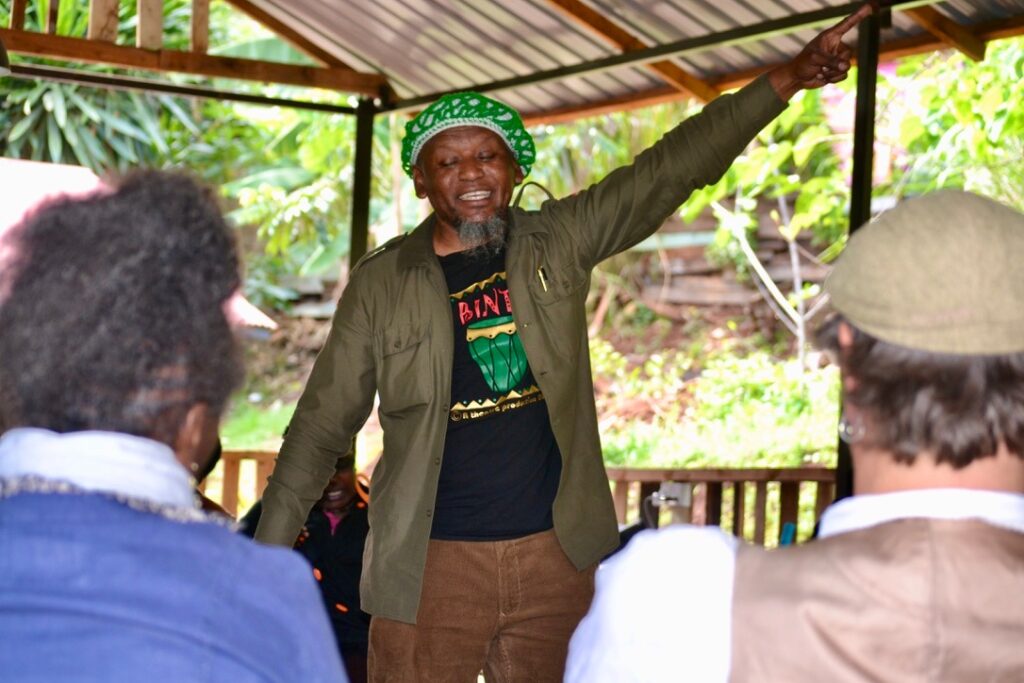
A participant gives a vibrant narration of his childhood experiences. Photo by Luigi MK.
This post was written by the author in their personal capacity.The opinions expressed in this article are the author’s own and do not reflect the view of The Theatre Times, their staff or collaborators.
This post was written by Alexander Nderitu.
The views expressed here belong to the author and do not necessarily reflect our views and opinions.

